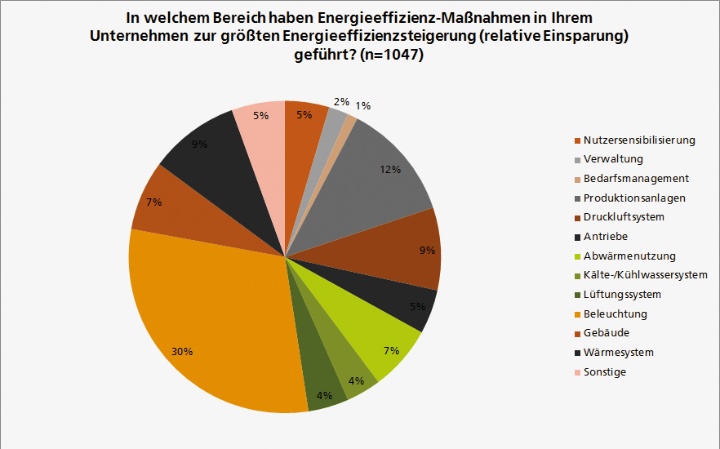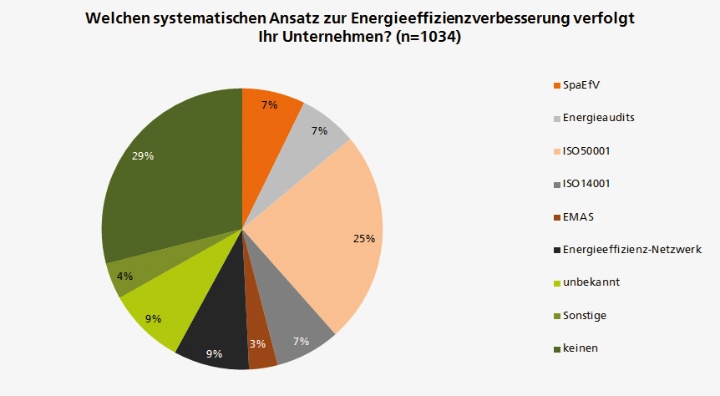At the turn of the year 2017/18 the Energy Efficiency Index EEI dropped to its lowest level since surveys were first taken. The most important reason: companies are investing less in energy efficiency and hardly increasing energy productivity although the significance of energy efficiency has not dwindled for them. Since 2013 the Institute of Energy Efficiency in Production EEP at the University of Stuttgart has been surveying current and planned activities by the German industry in terms of energy efficiency bi-annually. Among other things the EEI is prepared in cooperation with the German Energy Agency (dena), the Federation of German Industry (BDI), Fraunhofer IPA and TÜV Rheinland.
The assessment of the significance of energy efficiency in the just under 500 companies surveyed remains stable. The investment index dropped to half its value compared to the last survey, i.e. the share of energy efficiency measures in the entire investments the companies wish to take in the coming year. The most extreme curve downwards was the one that describes the expected increase in energy productivity: this value sank from 1.74 to 0.2 within half a year.
“Although companies constantly estimate the significance of energy efficiency as being high, they implement far fewer energy efficiency measures. The reason could be that the simple measures have frequently already been implemented and the resources are lacking for the quick implementation of more complex measures. The current economic boom as well as the political uncertainty in the election year have intensified these effects even more“, according to the Head of the Institute of Energy Efficiency in Production EEP in Stuttgart Professor Alexander Sauer.
Over 1000 companies from 27 sectors also answered the special questions posed by EEI that change every half year. Almost half, i.e. 500, would like more efforts on the part of the government in terms of energy efficiency.
Almost a third of the companies surveyed – the bigger the company the higher the share – records its energy consumptions systematically, in the case of the major companies the figure is almost half. 45 % of the companies that store energy data do this to identify energy efficiency potentials and corresponding measures. The measures taken in lighting thereby led most frequently to the greatest relative savings.
Three quarters of all companies surveyed take a systematic approach to improving energy efficiency, a third of this group thereby uses an energy management system according to ISO 50001. Only around 40 % of the smaller companies take a systematic approach. Already 9 % of the companies surveyed state that they belong to an energy efficiency network in the meantime.
An increasing number of companies could implement energy efficiency measures they identify themselves, however the impulses to also do this are lacking.
“It is therefore imperative that politicians remove remaining barriers – such as for example information deficits or high degrees of bureaucracy, reduce uncertainties and increase the profitability of energy efficiency measures again. Small companies in particular would like to see more commitment from politicians”, according to Professor Sauer.
Download all images at: www.eep.uni-stuttgart.de
Press Contact
Dr Birgit Spaeth
University of Stuttgart
Press Office EEP
Nobelstr. 12
D-70569 Stuttgart
Tel: +49 (711) 970-1810 birgit.spaeth@eep.uni-stuttgart.de
Expert Contact:
Christian Schneider M.Sc.
Project Manager Energy Efficiency Index
EEP – University of Stuttgart Nobelstr. 12, D-70569 Stuttgart Tel: +49 (711) 970-3640 christian.schneider@eep.uni-stuttgart.de




